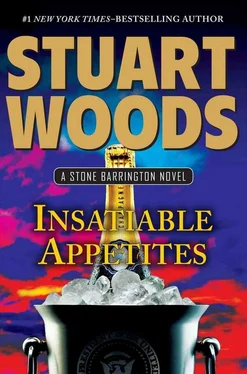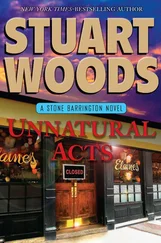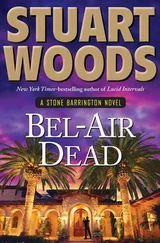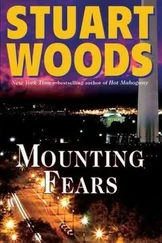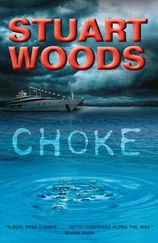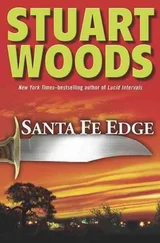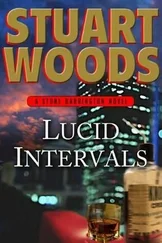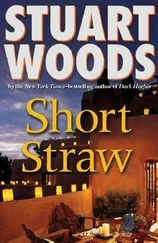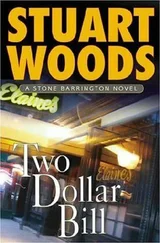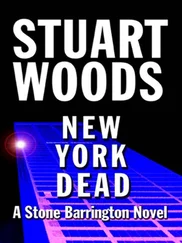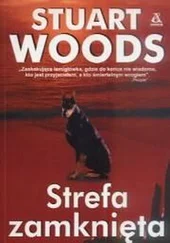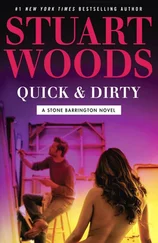“Did you tell her?”
“No, I never have. She met him, perhaps a dozen times. After his wife died he proposed to me, but I thought it was too late for such an upheaval in both Carla’s life and mine. But the dilemma is back. Now you know, and depending on what use you make of the journals, a great many other people could soon know.”
“I suppose that’s a possibility. In that unlikely event, I’ll take steps to be discreet.”
“I’m going to tell her as soon as she arrives,” Anna said, “and I’d appreciate it if you would be with us when I do.”
“If that’s what you wish.” The doorbell rang, and Fred went to get it. A moment later, Carla walked in.
“What a surprise,” she said, kissing her mother. “Did you change your mind about dinner?”
“No, I just stayed for a drink, and I have something to tell you, so get a drink and sit down.”
Stone made them all a drink, then sat down and shut up.
Anna began to tell the story again, while Carla listened, transfixed. When her mother had finished, Carla took a swig of her martini and set it down. “I knew it,” she said.
“How could you have known?”
“Because Eduardo was the only father I ever had. I met your husband only a couple of times.”
“Well, he moved to the West Coast.”
“Those times when we visited Eduardo were like going home to my father. I always thought of him that way. We saw quite a lot of him until I went to Yale.”
“That’s right, we did,” Anna said. “Well, I’m glad you’re happy with the knowledge.”
“I’m perfectly happy with it,” Carla said.
Anna looked at her watch. “Time for me to go. Dinner is uptown, near Columbia University.”
“I’ll have Fred drive you,” Stone said, “and I won’t take no for an answer.”
They both said good night to her, and Fred took her down to the car.
“Wow,” Carla said when she had gone. “I feel different somehow.”
“I can see how you might.”
“I want to read those journals when she’s through translating them,” she said.
“I think you have the right,” Stone replied.
Still, he wanted to read them first.
Sergeant Avery Morris was at his desk in the homicide bureau of the DCPD when a television set in the corner of the room caught his eye — something about a shooting at the Capitol. A couple of other people moved to where they could see the TV better, and somebody turned up the volume.
Morris came over and watched long enough to hear that the minority leader of the House of Representatives had been found dead in the House chamber cloakroom with a handgun nearby. He whistled at his partner. “Jimmy, let’s get out of here.”
Jimmy Clark came over. “For this?” he asked, nodding toward the TV. “That’s at the Capitol — not our jurisdiction. Let the Capitol Police and the FBI handle it.”
“I’m just curious,” Morris said. “You cover here, I’ll be back in an hour or two.” He went down to the garage and got into their unmarked car. At the Capitol he flashed his badge to get into the garage, then took the elevator up a floor and walked to the office of the Capitol Police.
Morris had had occasion to visit the Capitol on business, and he had always made a point of treating the cops there as equals, not as security guards. He asked to see Howard Atkins, the chief, and was shown in immediately.
“Hello, Avery,” Atkins said, standing up to receive him and pumping his hand. “Take a seat. Coffee?”
“Thanks, I will.”
Atkins buzzed somebody and a uniformed cop came in with two paper cups on a tray.
“You hear our news?” Atkins asked.
“On TV. I came over because I have an interest. Can you describe the scene for me?”
“The minority leader ate his gun,” Atkins said. “I haven’t been able to draw any other conclusion. Of course, we’re still talking to his family and staff. We hope to find something in his background that would explain this.”
“I have a feeling you won’t find anything that would explain it,” Morris said.
“Tell me why.”
“You hear about the guy in the men’s room at the Four Seasons restaurant?”
“Yeah, sure. You think there’s a connection?”
“Maybe. What kind of gun was involved?”
“An old Walther PPK, vintage World War Two.”
“The one at the Four Seasons was a Colt .45, vintage Korea.”
“So, two old guns?”
“Right, and I’ll bet your Walther didn’t have any prints on it or the cartridges except the minority leader’s.”
“Good guess, Avery,” Atkins said.
“Tell me, Howard, did any of your people look at the trash cans in the area?”
“I’ll find out.” Atkins left the room for a moment, then came back. “My people didn’t go into the trash. You want to do that with us?”
“If you don’t mind, Howard.”
The two men left the office together. “What are you looking for?” Atkins asked.
“I’ll know it when I see it.”
Two young cops did the work while the two older men watched. They found it in the third wastebasket. Morris pointed. “That’s what I’m looking for.” He put on some latex gloves. “If I’m right, it won’t have any labels or laundry marks. Somebody washed and ironed it at home.” He took the handkerchief from the young man and unfolded it. “Identical to one I found in a wastebasket at the Four Seasons.”
Somebody produced an evidence bag and put the handkerchief into it.
“So,” Atkins said as they walked back to his office. “Is this somehow going to break our case?”
“I don’t think so,” Morris said. “What it tells us is that these two apparent suicides are connected. The two men did know each other. Creed Harker was a Republican lobbyist, I’ve seen his picture in the papers with the minority leader.”
“That’s very interesting,” Atkins said.
“The two guns interest me, too. Harker was a collector, but I think when we look into it, the .45 won’t be something from his collection.”
“It sounds like what we need is a suspect with some more of those handkerchiefs in his dresser drawer.”
“Or a gun collection with a couple of missing guns.”
“Did your people find anyone of interest to talk to?”
“A couple of dozen people, but all credentialed for the House. We’ve got a tight security system here.”
“I don’t doubt it.”
“Tell you what we’re going to do, Avery,” Atkins said. “We’re going to start all over and question everybody near the scene again.”
“I won’t get in your way, but I’d like to hear what you find out.”
“I’ll call you tomorrow morning.”
The two men shook hands, and Morris went back to the garage and got his car. All the way back to the station he racked his brain. Nothing new came to him.
Stone didn’t sleep well, even after an athletic hour in bed with Carla. In the middle of the night, he put on a robe and slippers and went down to his office. He opened his big safe and took out the red leather notebooks of Eduardo’s journal. It troubled him that he had to learn of Carla’s relation to Eduardo from a coincidence involving his choice of a translator. He had thought he knew everything about Eduardo’s estate, except for what money he might have hidden from the IRS.
He began leafing through the journal, which he couldn’t read, looking for initials. In the fourth journal he found a reference to A.F. He pored over the Italian, trying to make sense of it. He could not, but in the next volume he began coming across the initial C . Then he turned a page and found a sealed envelope. He used a letter opener to get at the single page inside, then he unfolded it and switched on his desk lamp. It was a codicil to his will, handwritten and witnessed like the other codicils he had found in Eduardo’s safe. Apparently, Eduardo had kept it separate from the others and had intended for Stone to find it, since he had given him the journals. The codicil left two million dollars to Anna and made Carla an equal heir to his estate, along with Mary Ann, Dolce, and Ben. Eduardo had done the right thing.
Читать дальше
